Google partners with Samsung, Gentle Monster for new smart glasses
Google’s AI-powered XR wearables aim to challenge Meta’s dominance in the booming market
By 11 HOURS AGO
South Korea’s Rznomics inks $1.3 bn out-licensing deal with Eli Lilly


In China’s waterway city Hangzhou, K-beauty redefines ‘shuiguang'


Korea’s aesthetic medicine enjoys golden era with surge in foreign spending


When in S. Korea, it’s a ritual: Foreigners make stops at CU, GS25, 7-Eleven


Kumho Tire shuts Gwangju plant after fire, derailing record sales run


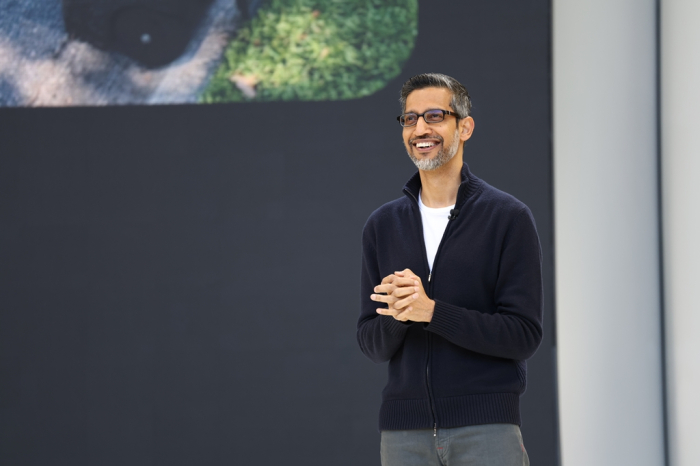
SILICON VALLEY – Google LLC is making a renewed push into the smart glasses market in partnership with South Korea’s Samsung Electronics Co. and fashion eyewear brand Gentle Monster Co. to launch a next-generation wearable device powered by artificial intelligence.
At its annual I/O developer conference on Tuesday, held in Mountain View, California, Google unveiled a prototype of its upcoming extended reality (XR) smart glasses, co-developed with Samsung and designed in collaboration with two eyewear brands Gentle Monster and US-based Warby Parker.
The device, dubbed XR Glass, marks the US tech giant’s first consumer-oriented smart eyewear effort in a decade.
The partnership builds on Google and Samsung’s ongoing collaboration on “Project Moohan,” meaning infinite in Korean. The project aims to release an Android XR-based headset later this year.
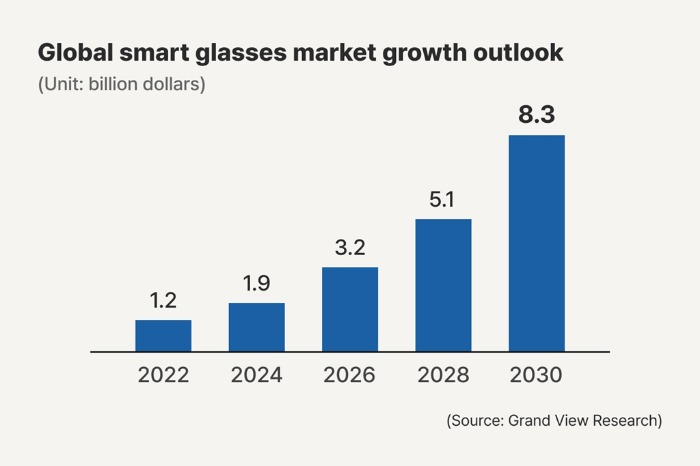
The smart glasses represent a strategic extension of that alliance into a broader category of wearables, said officials of the two companies.
In February 2023, Samsung teamed up with Google and Qualcomm Technologies Inc. to venture into the XR device market.
XR is a catch-all term that covers technologies like virtual reality (VR) and augmented reality (AR).
Google’s latest device integrates its Gemini Live AI assistant, capable of responding to voice queries via a built-in speaker and displaying contextual information on a transparent screen embedded in the right lens.
The interface overlays information without obstructing the user’s field of vision, offering real-time navigation, translation and memory recall powered by an onboard camera and microphone array, according to Google.
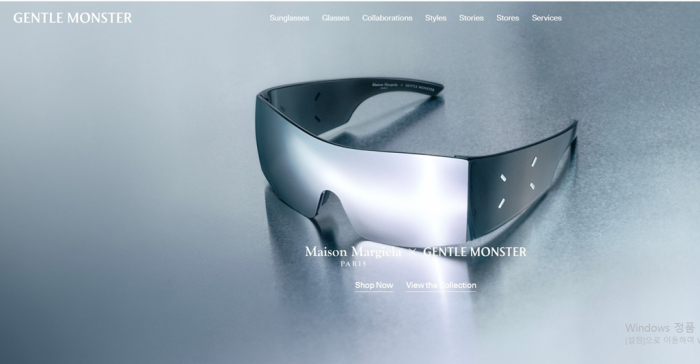
‘GAINING A SUPERPOWER’
“When you wear these glasses, it’s like gaining a superpower,” said a Google executive during the keynote presentation. “This partnership with Samsung is moving to the next level.”
The sleek industrial design – crucial to consumer adoption – is being led by Korea’s Gentle Monster, known for its luxury aesthetic, and Warby Parker.
The Korean brand is popular among young people, called Gen Z, thanks in part to its edgy silhouettes, and is favored by fashion-forward celebrities such as Beyoncé and Billie Eilish. Industry watchers said partnering with Gentle Monster and Warby Parker hints that Android XR is aimed at both versatile, everyday glasses as well as bolder, trendsetting options.
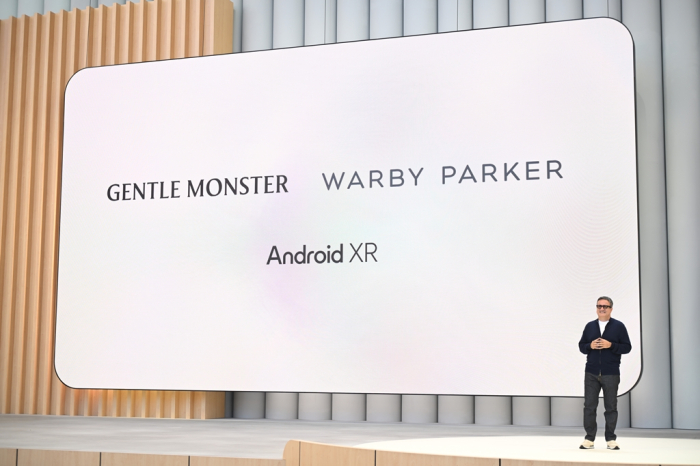
APPROACH MIRRORS META’S PARTNERSHIP WITH RAY-BAN
The approach mirrors Meta Platform Inc.’s partnership with Ray-Ban for its smart eyewear line, highlighting the growing importance of fashion-tech collaboration in the wearable category.
Google entered the smart glasses space in 2013 with Google Glass, the first such product from a Big Tech firm.
However, it pulled out of the market due to weak consumer uptake and privacy concerns in 2015.
Its re-entry reflects a broader industry shift. AI advancements and the maturing XR ecosystem are reviving interest in consumer-grade smart wearables, analysts said.
Samsung had hinted at the collaboration during its Galaxy Unpacked event earlier this year, but this week’s unveiling marks the first public demonstration of the new smart glasses concept.
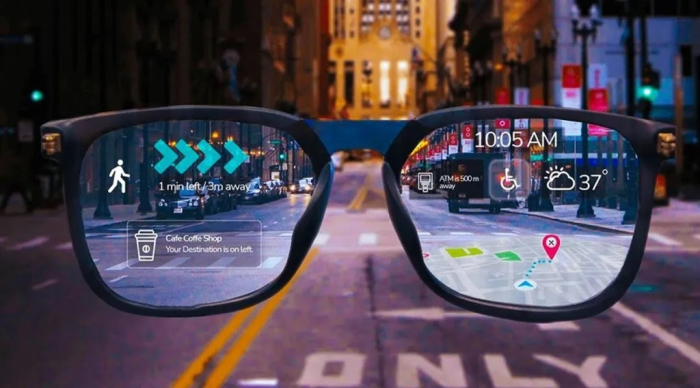
POWERED BY ANDROID XR, GEMINI
According to Google, the smart glasses will be compatible with Android XR, the company’s dedicated operating system for extended reality, allowing for seamless integration with existing apps and services.
A live demonstration at the I/O conference showcased real-world scenarios, including voice-commanded messaging, GPS-based navigation and cross-language conversation.
In one example, the glasses translated Spanish speech into English subtitles in real time. In another, Gemini, Google’s AI assistant, recommended and navigated the user to a nearby ramen restaurant using Google Maps overlays.
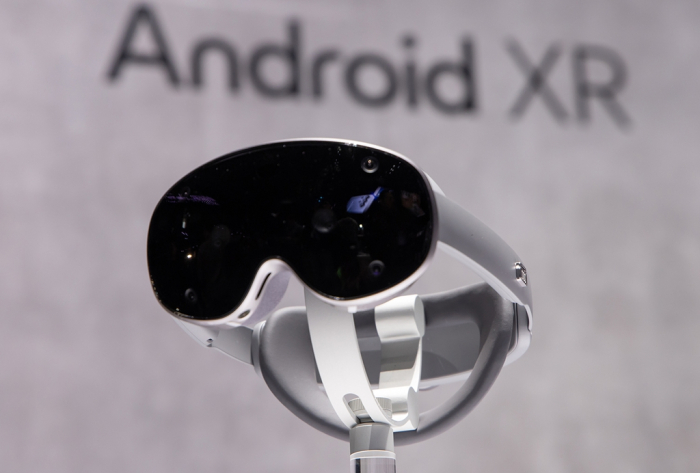
Google’s expanded partnership with Samsung comes as competition in the XR space heats up.
Meta currently controls about 74% of the global smart glasses market, according to Counterpoint Research.
XR MARKET TO DOUBLE BY 2030
Analysts estimate the global XR market exceeded $100 billion in 2024 and could more than double by 2030.
Market research firm Grand View Research forecasts the smart glasses segment will grow to $8.3 billion by the end of the decade from $1.2 billion in 2022.
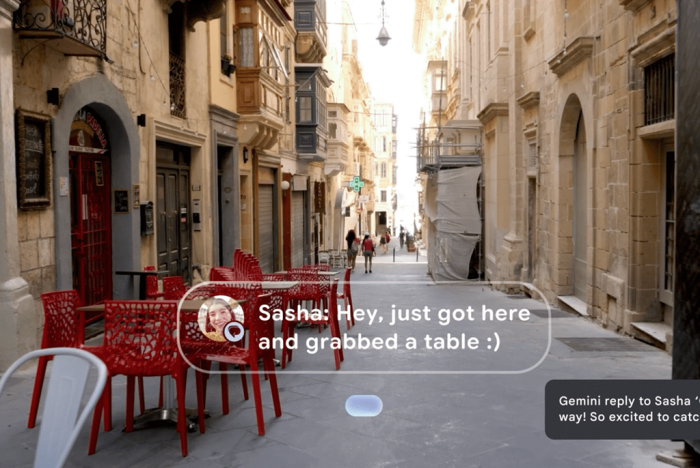
By leveraging the Android ecosystem, Google hopes to outmaneuver Meta’s closed XR environment.
While Meta’s XR devices require customized third-party app development, Android XR enables developers to repurpose existing mobile apps with relative ease, potentially accelerating adoption.
“Smart glasses must be both functional and fashionable to succeed,” said a Google official. “With leading innovation partners on both hardware and design, we believe Android XR can redefine the wearable experience.”
Write to Young Chan Song at 0full@hankyung.com
In-Soo Nam edited this article.
-
 Tech, Media & TelecomSamsung steps up AR race with advanced microdisplay for smart glasses
Tech, Media & TelecomSamsung steps up AR race with advanced microdisplay for smart glassesMay 07, 2025 (Gmt+09:00)
3 Min read -
 Tech, Media & TelecomSamsung, Google to unveil smart glasses next year in deeper AI alliance
Tech, Media & TelecomSamsung, Google to unveil smart glasses next year in deeper AI allianceApr 11, 2025 (Gmt+09:00)
3 Min read -
 Tech, Media & TelecomGoogle unveils Android XR platform to launch on Samsung headset
Tech, Media & TelecomGoogle unveils Android XR platform to launch on Samsung headsetDec 13, 2024 (Gmt+09:00)
2 Min read -
 Tech, Media & TelecomLG ends XR partnership with Meta; Amazon emerges as new partner
Tech, Media & TelecomLG ends XR partnership with Meta; Amazon emerges as new partnerMay 20, 2024 (Gmt+09:00)
3 Min read -
 Tech, Media & TelecomSamsung’s next frontier: XR in partnership with Qualcomm, Google
Tech, Media & TelecomSamsung’s next frontier: XR in partnership with Qualcomm, GoogleFeb 02, 2023 (Gmt+09:00)
3 Min read


